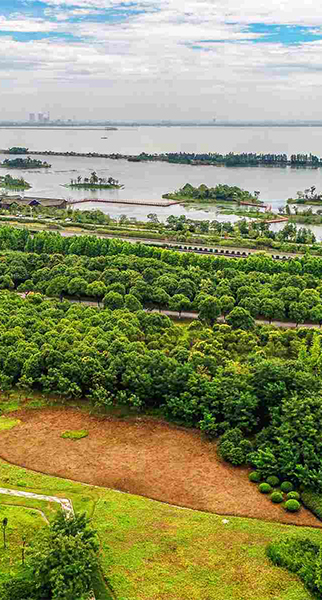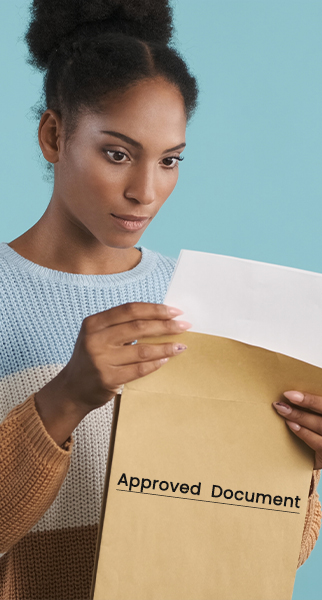Acquire Private Land Overview
Sökfält
Länkstig
Access Incentives
Close a Business
Acquire Land
Obtain Accreditations
Secure Approvals
-
Secure Approvals
-
Tourism Product Development Company (TPDCo.)
- Accommodations
- Attractions and Others
-
Licenses and Leases
- Cannabis
- Farms
- NCRA - Food Processing Establishment
- WRA - Water Resources Authority Services
- Energy Plant
- Telecoms Operation
- Institutional Healthcare Facilities - Healthcare Facilities
- Quarry Licence
- Mining Lease
- Registration of Film Production
- Pharmaceutical License
- NCRA(Verification of Scales And Petrol)
- MIIC(CET and Safeguard Mechanism)
-
Building and Construction
- Electricity Connections
- Water and Sewerage Connections
- Fire Brigade
-
Development and Promotion
- SEZ. Status
Registers
Business Support Services
Digital Secure Approvals
-
Secure Approvals
-
Tourism Product Development Company (TPDCo.)
- Accommodations
- Attractions and Others
-
Licenses and Leases
- Cannabis
- Farms
- Pharmaceutical License
- Registration of Film Production
- Fire Brigade
- NCRA(Verification of Scales And Petrol)
- MIIC(CET and Safeguard Mechanism)
- Institutional Healthcare Facilities - Healthcare Facilities
- Quarry Licence
- Mining Lease
- NCRA - Food Processing Establishment
- WRA - Water Resources Authority Services
-
Development and Promotion
- SEZ. Status
Digital Access Incentives
Digital Obtain Certifications
Digital Obtain Accreditations
Digital Acquire Land
Business Support Services
Digital Business Support Services
Menyvisning
Acquire Private Land
More often than not, acquiring land/real estate in Jamaica can be a straightforward process if you know the right steps to follow.
Acquire Private Land overview
Understand more about the process…
Land in Jamaica is purchased “as is” and therefore, as the Purchaser, it is important to know what you are getting and to be aware of process in order to ensure sale is completed in a smooth and uninterrupted manner.
The land titling system recognizes two types of land titles - the first is a Common Law Title, which is an ownership certificate used for land that is unregistered. The common law title is a Deed of Conveyance, it is not a full title for the land, but it can be advanced to a registered title. The second type is a Registered Title, which is both the official and legal form of title.
- During a land sale transaction, once the Agreement for Sale has been prepared, and both parties have signed, the sale becomes binding and official.
- After that, an application will be presented to the Office of the Registrar of Titles, and you will be required to pay the relevant government duties.
- It is important to remember that conveyance of land documents need to be stamped within 30 days after they have been signed or you will be subject to penalty fees.
By the end of the transfer, a copy of the properly registered legal and official title must be passed on to you as the purchaser.

Do your Due Diligence before making your Offer…
Do your due diligence:
- Your first step is simply to locate a piece of land to buy that is appropriate for your investment project. This may be done on your own or with the assistance of a real estate broker/agent.
- You should retain the services of an Attorney experienced in conveyancing matters.
- Be prepared to thoroughly research potential properties before you sign an agreement to purchase. Below is a list of the areas to investigate before you buy land:
- Deed and ownership history.
- Property taxes are paid up to date.
- Existing zoning and any potential zoning issues.
- Physical characteristics (hillside/flood prone/etc) of the parcel are appropriate (visit the site).
- Usage restrictions and building code requirements.
- Availability of utilities (access to electricity/water/communication lines).
- Property survey and plot maps (no infringements)
- A land survey and title search should be done to make sure that no other claim or conflicting interests are registered against the property.
- You may also choose to do a valuation on the property to verify the market value.
Make an offer:
- Once due diligence has been satisfied, as the Purchaser, you would then make an offer or accept the Vendor’s asking price.
- If you intend to use a mortgage facility to pay for the land, you would apply to a lending institution, otherwise, the transaction may also be done by way of cash payment(s). (please be mindful of the Proceeds of Crimes Act (POCA) restrictions on cash transactions greater than JMD$1.0M)
- You may want to consider lodging a caveat on the property. This caveat will prohibit any other interest from being registered against the property until the transfer has been completed.
- The Vendor and/or his Attorney then prepare the Agreement for Sale.
- Both Parties are required to sign the Agreement for Sale in the presence of a witness.
- Once the Agreement has been signed, you would pay a deposit (a percentage of the selling/purchase price).
What happens once the sales agreement has been signed?…
Once the Sales Agreement has been signed and properly executed by both parties, the sale becomes binding and official. After this, the government duties need to be paid and the documents stamped. Properties cannot be legally transferred unless the Transfer Tax and Stamp Duty have been paid.
- The sales agreement/transfer instrument should be submitted to the Stamp Office before it is lodged with the Registrar of Titles. The payment of the transfer tax and stamp duty will be noted on the instrument and signed by the Stamp Commissioner.
- The documents must be stamped within 30 days of signing, to avoid substantial penalties.
- The Vendor pays the transfer taxes.
- As Purchaser, you are also required to pay a portion of stamp duty on the transaction. The amount for stamp duty is split 50:50 with the Vendor.
- A certificate will then be issued by the Stamp Commissioner verifying payment of all duties.
- The Vendor will then submit an application to the office of the Registrar of Titles.
- The transfer of the title completes the sales transaction.

Application for registration of title is submitted…
The time limit prescribed for submission of the application for the registration of title should be complied with. This time limit and the effect of non-compliance depend on whether it is the first registration or for the transfer of registration (that is for land that is already registered). The time limits are as follows:
- In the case of land that was previously unregistered (common law title), the prescribed time limit is two months, failing which the transfer becomes void.
- In the case of registered land, it is suggested that the transfer is registered within the priority period of 30 days. Failing to do so, could result in the buyer losing his priority in favour of another application.
Applications must be made on the correct application form. This form should be accompanied by the appropriate registration fee. The application to the Land Titles Division is usually submitted by the Vendor. All applications should be addressed to “The Registrar of Titles”.
The National Land Agency
Land Titles Division
93 Hanover Street
Kingston
Mon – Thurs: 8:00 am - 3:30 pm
Friday: 8:00 am - 3:00 pm
Tel: 876-750-5263/946-5263
Fax: (876) 922-3858
Email: asknla@nla.gov.jm

Pay the relevant Processing Fees…
The fees related to land sale transactions in Jamaica can be significant. Agent’s fees, Attorneys’ fees, Notaries’ fees, Registration fees, Taxes/Duties, etc. If the land/property is not properly sorted and prepared for sales, such as matters related to freeing the land/property of encumbencies (which may include tenants) and/or probating a will and relating expenses etc. - this can mean additional costs for the vendor, but also significant time delays for you as the Purchaser.
- Agents’/Brokers’ Commission: The real estate agent’s/broker’s commission is negotiable, and traditionally the vendor pays the broker’s fees, but it is becoming the norm to pass the cost to the purchaser.
- Vendor: 5% (sale/purchase price) + 16.5% General Consumption Tax (GCT)
- Legal/Attorney’s Fees:
- Purchaser: pays 2-4% (purchase price) + 16.5% GCT
- Vendor: pays 3-3.5% ( purchase price) + 16.5% GCT
- Agreement for Sale: The total cost (approximately 0.4% of property value + 16.5% GCT) for the preparation of Agreement for Sale, tax registration form and other miscellaneous costs are typically split evenly (50:50) between Vendor and Purchaser.
- Vendor: pays 0.20% (property value)+ 16.5% GCT
- Purchaser: pays 0.20% (property value)+ 16.5% GCT
- Stamp Duty: Stamp duty is usually 5.5% of the sale/purchase price, and is shared equally between the Purchaser and Vendor.
- Purchaser: pays 2.75%
- Vendor: pays 2.75%
- Transfer Tax:
- Vendor: pays Transfer tax of 7.5% of property price
- Title Registration Fee: Registration fee is payable at the National Land Agency, and is shared equally between the Purchaser and Vendor.
- Purchaser: pays 0.25% of the purchase price
- Vendor: pays 0.25% of the purchase price
- Other possible costs:
- Land Survey: Commissioned Land Surveyors
- Property Valuation: Property Valuators
- Document Certification: Notaries Public
Processing Time:
For land sales in Jamaica, if everything goes according to plan:
- Signed Sales Agreement: A completed cash sale - within 30 days
- Signed Sales Agreement: A completed mortgage-financed sale - within 90 days
- Certificate of Title: (first registration) -
- Certificate of Title: (transfer of registration) -

Collect your Approved Document(s)…
Once everything is in order, then an Agreement is issued for your signature. You will need to sign it and to collect your copy of the final executed Agreement, which is now legally binding on all parties.
At the end of the process you will receive the following:
- Your executed Sales Agreement
Once submitted the application for Registration of Title, the NLA through its Land Titles Division will then carry out its own due diligence exercise and if satisfied that everything is in order and upon approval, an official copy of the Certificate of Title is issued.
At the end of the process you will receive the following:
- Your Certificate of Title (official copy)

